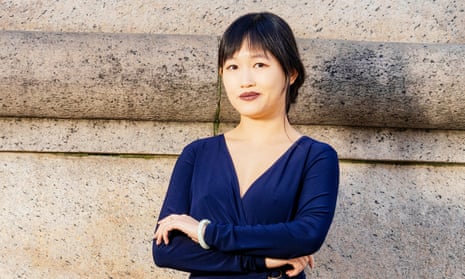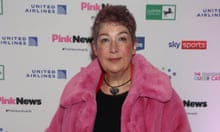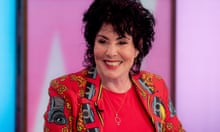The author of Babel and The Poppy War, Rebecca F Kuang, has said she finds the idea that authors should only write about characters of their own race “deeply frustrating and pretty illogical”.
Speaking at the Hay festival, the author, who was born in China but moved to the US when she was four, said that there is a “really weird kind of identity politics going on in American publishing”. She is “sympathetic” to an extent, as it is coming from “decades of frustration of seeing the same racist, uncritical, under-researched, shallow stereotypes”.
The problem is, Kuang thinks, is that this has now “spiralled into this really strict and reductive understanding of race”. As a result, a movement that began as a call for more authentic stories about marginalised communities “gets flipped around and weaponised against the marginalised writers to pigeonhole them into telling only certain kinds of stories”.
The issue is addressed in Kuang’s recent novel, Yellowface, in which a white writer claims a dead Chinese friend’s manuscript as her own. When the book, about Chinese farm workers who supported Britain in the first world war, becomes a huge success it sparks a debate about the supposed author’s right to tell the story.
Kuang was critical of those who believe that “the only people getting book deals right now are BIPOC [Black, Indigenous and people of colour] writers”, including Joyce Carol Oates, who tweeted last year that editors do not want to look at debuts by white male writers. Oates “really just needs to get off Twitter”, Kuang joked, but also said “if you just walk into a bookstore you know that’s not true.”
“We also know from industry reports year after year that the number of BIPOC authors being published hasn’t really budged since the 70s”, she added. “In fact, you can historically trace the years in which the number of Black authors being published in the US spiked to the years in which Toni Morrison was an acquiring editor, which is very depressing.”
When it comes to another contentious issue in the publishing world – sensitivity readers – Kuang said she has “mixed feelings”.
“I’ve always found it really weird to pay somebody to tell you if you’ve accidentally been racist,” she added. “I think you should be able to do the research to know yourself.”
However, she did use four sensitivity readers when she was writing Babel – which follows a group of language students at Victorian-era University of Oxford who get drawn into the first opium war – and “really loved that experience”. She was not, however, treating them as people who would police her work but as collaborators “who could bring in an extra detail and depth and complexity to characters with a shared background”.
“It’s sort of like going to an academic colleague and showing them your research paper and asking them for their thoughts on the blind spots and recommendations for literature that you might consult,” she said.








